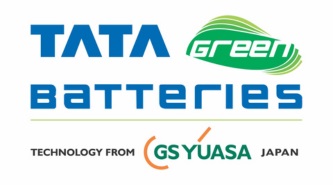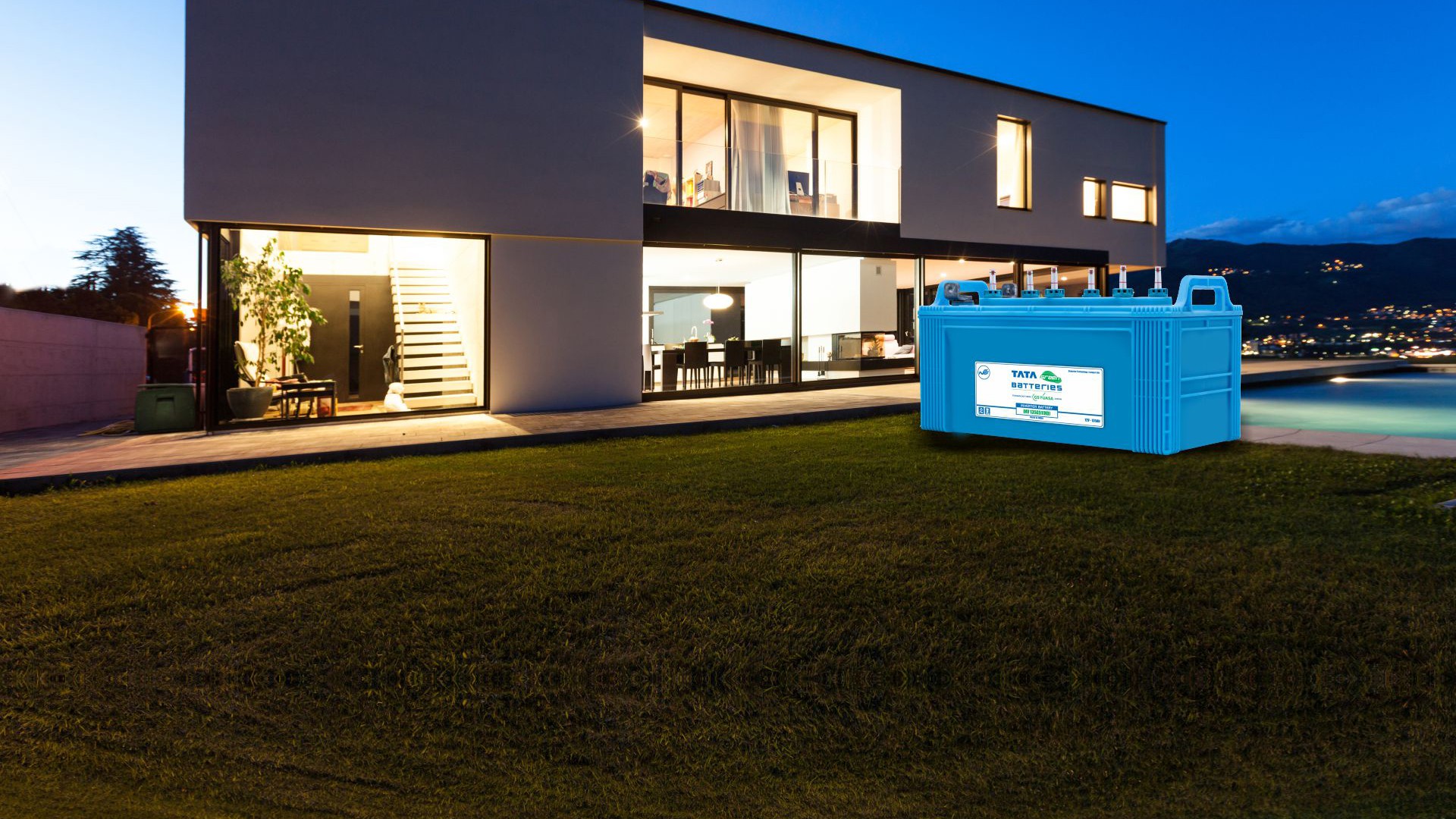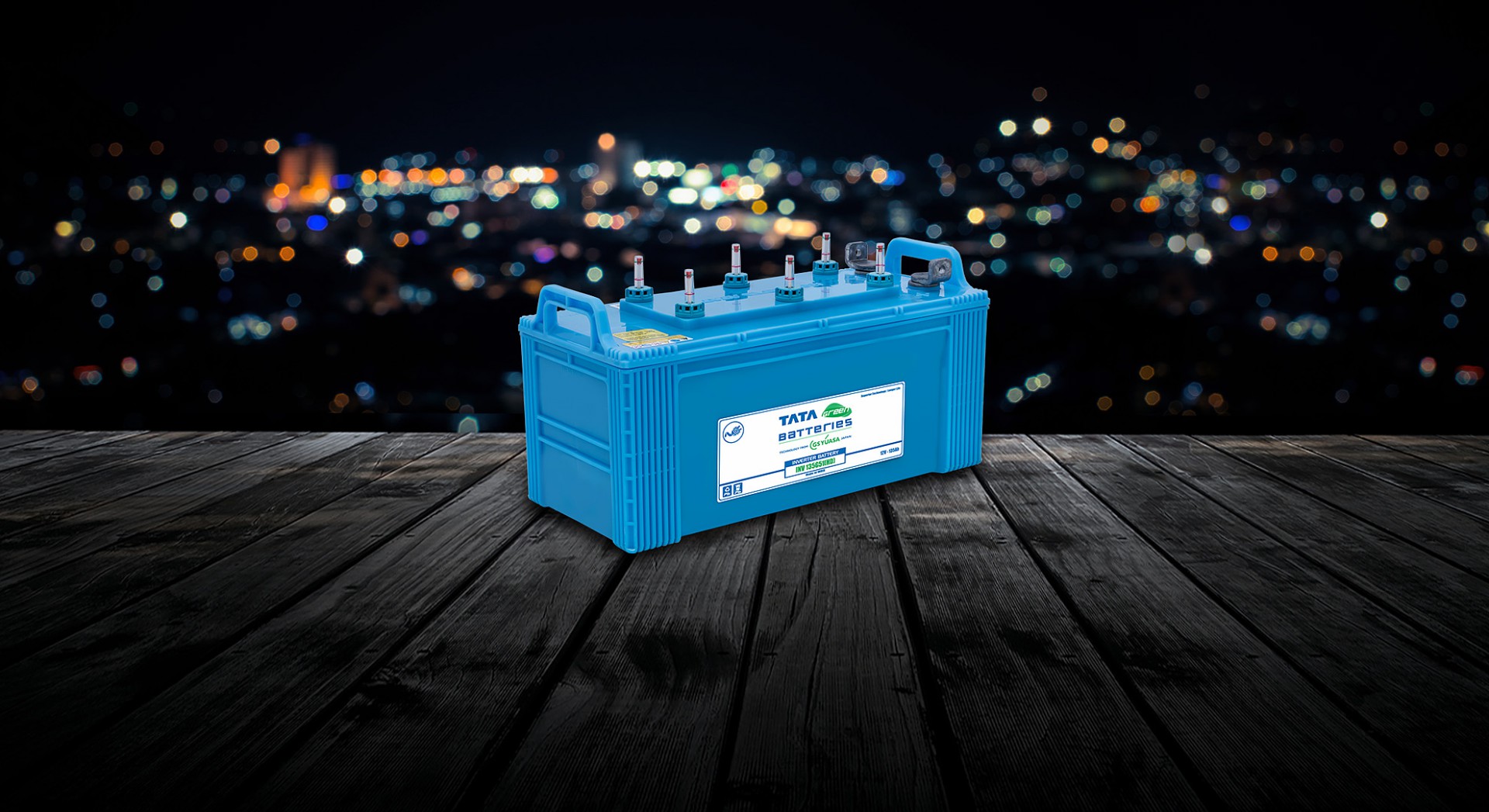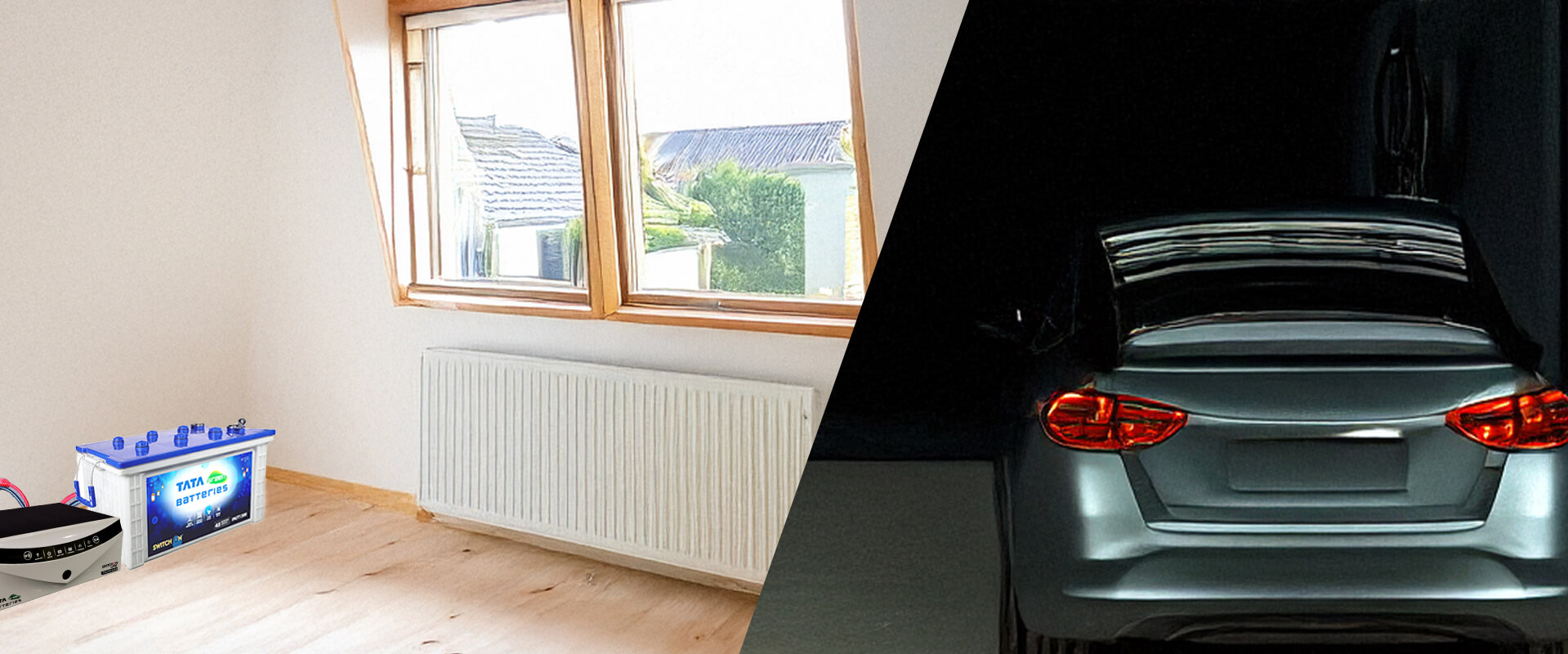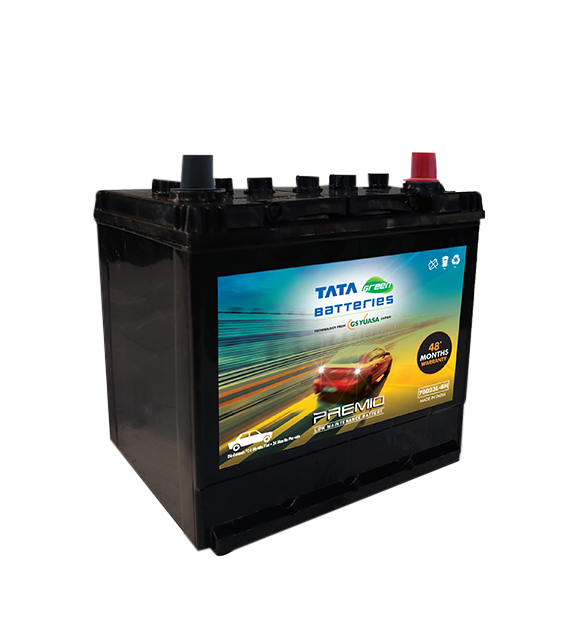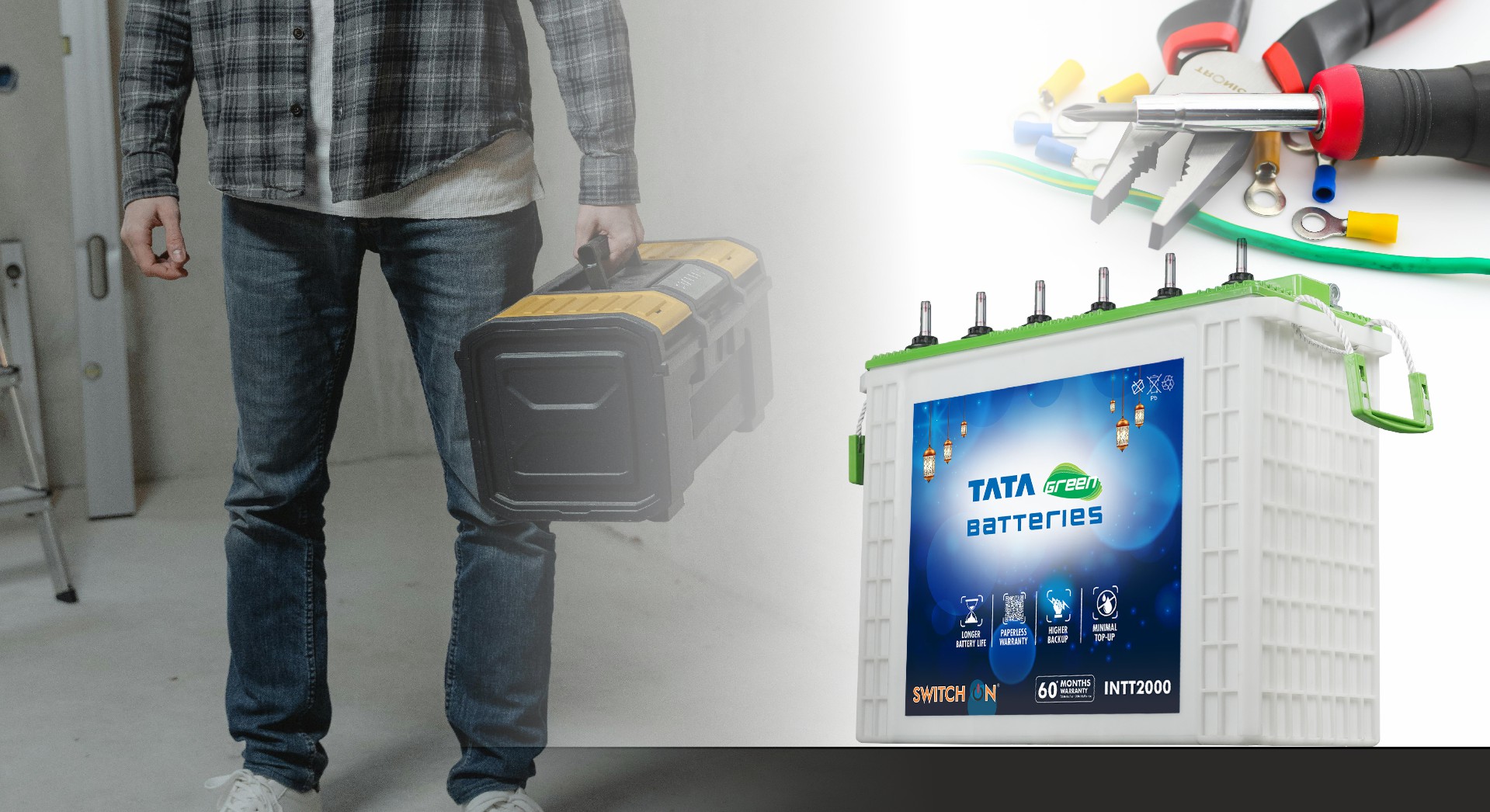The global shortage of resources has triggered increased dependency on alternate power sources. Consequently, Power Inverters have become an integral part of our lives. These saviours, in our tough times of perennial outages, keep the show running by powering electrical and electronic devices of varying capacities. The performance of inverters, however, largely depends on the performance of the battery. It’s the battery that safeguards the longer life of your inverter. Therefore, maintaining and maximising the efficiency of your inverter battery is essential to ensure long-lasting performance and effective energy backup.
One of the most reliable options for inverters is the tubular battery. Known for its durability and efficiency, tubular batteries are designed to deliver consistent power output, even during extended power cuts. A tubular battery for an inverter is highly preferred due to its longer life cycle, robust performance, and ability to handle deep discharges. For instance, a tubular battery of 200Ah is ideal for homes or small offices, providing optimal power backup during outages.
Understanding Inverter Battery Efficiency
First, let’s understand inverter battery efficiency. It refers to how effectively the battery can store and convert energy for use during power cuts. The battery’s efficiency is directly related to its capacity to deliver backup for extended durations. Many factors can influence inverter battery efficiency, including load management, charging practices, and overall maintenance. Also, the tubular battery price may vary based on capacity and the warranty.
Key Tips for Improving Inverter Battery Efficiency
Let Go of Extra Load
Inverters supply current derived from the energy stored in batteries. During an outage, the number of devices you connect to the inverter directly affects the amount of power drawn from it. Naturally, the higher the load, the shorter the backup period. Allocate the load smartly according to your needs.
Mind The Terminals
Rusting or corrosion deters battery’s performance. It weakens the current flow from and to the battery. Such sluggish current results in slow battery charging, which diminishes battery life and gradually afflicts inverter backup.
Tend The Terminals
Clean the corroded terminals using an old toothbrush or baking soda solution. After cleaning the terminals, apply petroleum jelly to prevent future corrosion.
Correct Charging Is the Key
Inverter batteries must be charged correctly and regularly to function smoothly. If there has been no power cut for a long time, the battery should be discharged completely once a month and then recharged.
Keep The Battery Hydrated
Check the battery’s water level (max. /min. limit) every two months. Top up the battery with distilled water only. Never use tap water or rainwater, as they contain impurities that adversely affect the battery.
Use Energy Saving Appliances
There’s a wave of energy-saving brands in the market claiming that their devices’ energy consumption has decreased substantially. Choose decent brands to derive maximum mileage out of such eco-friendly promises. Products such as CFL bulbs, LED lighting, power-saving gadgets, etc, are ideal to use with inverters as they are heavy on performance and light on load.
Use Quality Batteries
Replace worn-out inverter batteries with quality products only. Go for batteries with long-lasting performance, correct charge storage capacity, eco-friendly, etc. Cheap, substandard batteries fail to deliver adequate back-up in the long run. For high-quality, trusted batteries, always opt for Tata Green Batteries and choose the most suited battery type according to your load requirement.
Inverter Battery Maintenance Tips
Proper maintenance is crucial for prolonging inverter battery life and ensuring maximum efficiency. Here are some useful maintenance tips:
- Regular Inspection: Inspect the battery and inverter system regularly for signs of wear, corrosion, or damage. Early detection of problems can prevent costly repairs and extend battery life.
- Ventilation: Ensure that the battery is placed in a well-ventilated area. Inverter batteries tend to heat up during use, and poor ventilation can lead to overheating, reducing battery efficiency and lifespan.
- Avoid Overloading: Never overload your inverter. Consistently drawing more power than the inverter can handle will wear-down the battery quickly and reduce its ability to hold a charge over time.
Average Inverter Battery Life
The lifespan of an inverter battery varies depending on factors such as battery type, usage patterns, and maintenance. On average, a well-maintained lead-acid inverter battery can last anywhere between 3 to 5 years, while high-quality lithium-ion batteries may last up to 7 years or longer. Regular maintenance and adherence to best practices are critical to maximising your inverter battery life.
Conclusion
Inverter batteries are the backbone of any inverter system, and their efficiency and longevity play a critical role in determining how well your power backup system performs. Choosing the right tubular battery and ensuring its maintenance is key to maximising the performance of your inverter. You can significantly increase your inverter battery’s efficiency and lifespan by following the tips outlined above. Investing in quality tubular batteries, such as those offered by Tata Green Batteries, is a smart decision that ensures reliable backup and a long-lasting power supply. These batteries are designed to provide maximum efficiency, and with proper maintenance, they can serve you well for many years.
